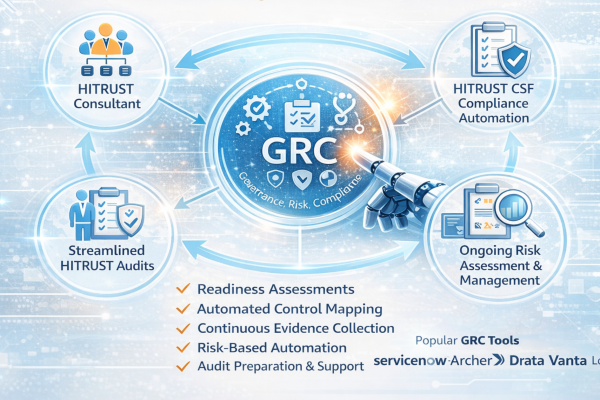Cloud Security in 2025: Why You Need Penetration Testing Services More Than Ever
In 2025, cloud computing remains the cornerstone of digital transformation. Companies across the world—from startups to enterprises—are shifting their data, applications, and infrastructure to the cloud for better scalability, cost-effectiveness, and agility. However, this widespread adoption has also introduced new and more sophisticated cybersecurity threats.
As cyber threats become more complex, Penetration Testing Services have become essential for protecting cloud environments.
In this blog, we’ll explore the current state of cloud security in 2025, the increasing cyber risks, and why businesses urgently need Penetration Testing Services to safeguard their digital assets.
What Is Cloud Security?
Cloud security refers to the practices, technologies, and policies that protect cloud-based systems, data, and infrastructure. It includes everything from access control and encryption to compliance and threat detection.
In simple terms, cloud security is how you keep your cloud-stored information and services safe from hackers, leaks, or internal misuse.
Why Is Cloud Security So Important in 2025?
As of 2025, almost every industry relies on the cloud. Whether it’s healthcare storing sensitive patient data, finance managing real-time transactions, or e-commerce platforms handling millions of customer details, cloud environments have become mission-critical.
Here are a few reasons why cloud security is more important than ever:
- Remote Work Is Here to Stay: More companies are operating in hybrid or remote models. This makes cloud security crucial, as employees access data from various devices and locations.
- AI and IoT Integration: More cloud platforms now host AI tools and Internet of Things (IoT) devices, expanding the attack surface.
- More Sophisticated Cyberattacks: Ransomware, supply chain attacks, and insider threats are evolving fast.
- Regulatory Requirements: New and stricter regulations like the EU’s Digital Operational Resilience Act (DORA) and updates to GDPR are pushing businesses to secure their cloud environments.
All of these factors highlight the importance of Penetration Testing Services to discover and fix weaknesses before attackers exploit them.
What Are Penetration Testing Services?
Penetration Testing Services are professional services that simulate cyberattacks on your cloud systems, applications, or networks to uncover vulnerabilities. Also known as “ethical hacking,” penetration testing helps businesses identify and patch security gaps before they can be used by malicious hackers.
These services are carried out by skilled security experts using a combination of tools and manual techniques to mimic real-world attacks.
Types of Penetration Testing for Cloud Security
There are several types of Penetration Testing Services that focus on different areas of your cloud environment:
1. Network Penetration Testing
Tests the strength of your cloud network infrastructure.
Identifies issues like open ports, misconfigured firewalls, or insecure VPNs.
2. Web Application Testing
Examines web applications hosted on cloud platforms.
Looks for issues like SQL injection, cross-site scripting (XSS), and insecure APIs.
3. Cloud Configuration Assessment
Reviews how your cloud environment (like AWS, Azure, or GCP) is set up.
Detects misconfigured buckets, IAM policies, or excessive permissions.
4. Internal and External Testing
External testing simulates attacks from outside the organization.
Internal testing simulates threats from someone within the company or a compromised account.
5. Social Engineering
Tests how vulnerable your employees are to phishing or other human-based attacks.
All these types of testing are part of a well-rounded Penetration Testing Services strategy.
Key Benefits of Penetration Testing Services in 2025
1. Identify Cloud-Specific Vulnerabilities
Cloud platforms have unique security challenges like multi-tenancy, shared responsibility, and API usage. Penetration Testing Services can identify vulnerabilities specific to cloud services.
2. Protect Customer Data
A single security breach can result in damaged trust, legal complications, and significant financial penalties. Regular penetration testing helps prevent data leaks and ensures that customer information stays secure.
3. Maintain Compliance
In 2025, data protection laws are stricter. Regular penetration tests help you comply with frameworks like:
GDPR
HIPAA
ISO/IEC 27001
PCI DSS
DORA (EU)
Many of these standards recommend or require Penetration Testing Services to validate security.
4. Cost-Effective Risk Management
It’s far more cost-effective to prevent a breach than to recover from one. Penetration testing helps you prioritize and fix issues early, reducing the cost of potential damage.
5. Build Customer Trust
Security is a top concern for customers. By investing in Penetration Testing Services, you show clients and stakeholders that their data is in safe hands.
Cloud Security Challenges That Demand Penetration Testing
Even in 2025, businesses face several challenges in cloud security that make Penetration Testing Services a necessity:
Misconfigured Cloud Services
A common issue in cloud security is misconfigured settings—like public storage buckets or overly permissive IAM roles. These misconfigurations are easy to overlook but pose serious threats.
Insecure APIs
Cloud applications rely heavily on APIs. If these are not properly secured, they can become easy entry points for attackers.
Shadow IT
Employees occasionally use unauthorized cloud applications without notifying the IT department. These unmonitored services create security gaps.
Complex Access Controls
Cloud environments often feature intricate access controls and shared resources, making it easy to misconfigure permissions and potentially expose systems to privilege escalation risks.
Shared Responsibility Model
Cloud providers such as AWS and Azure secure the underlying infrastructure, while customers are responsible for protecting their own data and applications.This model requires regular validation via Penetration Testing Services.
How Often Should You Conduct Penetration Testing?
In 2025, the best practice is to schedule Penetration Testing Services:
- At least once a year
- After major changes to your cloud environment
- When launching new applications or services
- After a security incident
Some businesses, especially those in regulated industries like finance or healthcare, opt for quarterly testing or even continuous testing models.
Choosing the Right Penetration Testing Provider
Not all Penetration Testing Services are equal. Here are the key factors to consider when choosing a provider:
- Cloud Expertise: They should have deep knowledge of your specific cloud platform (AWS, Azure, GCP).
- Certified Professionals: Look for certifications like OSCP, CEH, or CISSP.
- Manual Testing Capabilities: Automated tools are great, but manual techniques find hidden vulnerabilities.
- Detailed Reporting: Ensure they provide clear, actionable reports with risk ratings and remediation steps.
- Compliance Alignment: The provider should understand industry compliance needs.
Future Trends: Cloud Security and Penetration Testing in 2025 and Beyond
Here’s what to expect in the near future and how Penetration Testing Services will adapt:
AI-Powered Attacks
Attackers are increasingly leveraging AI to identify vulnerabilities more quickly. Penetration testers will also start using AI to simulate smarter, more targeted attacks.
DevSecOps Integration
Penetration testing is increasingly becoming part of the DevSecOps lifecycle. Ongoing security testing will be integrated into CI/CD pipelines.
Zero Trust Adoption
The Zero Trust security model—“Never trust, always verify”—requires ongoing validation. Penetration testing helps verify access controls and trust boundaries.
Cloud-Native Security Tools
Expect more integration of tools like CSPM (Cloud Security Posture Management) and CWPP (Cloud Workload Protection Platform) with penetration testing frameworks.
Conclusion
In 2025, cloud security is no longer optional—it’s a business-critical requirement. With growing threats, complex infrastructures, and strict regulations, businesses must go beyond firewalls and antivirus software.
Penetration Testing Services provide a proactive, reliable, and professional way to uncover vulnerabilities before attackers do. They play a key role in protecting cloud environments, ensuring compliance, and building trust with customers.
Whether you run a small startup or a global enterprise, investing in regular penetration testing is one of the smartest security decisions you can make in the modern cloud era.
Author







